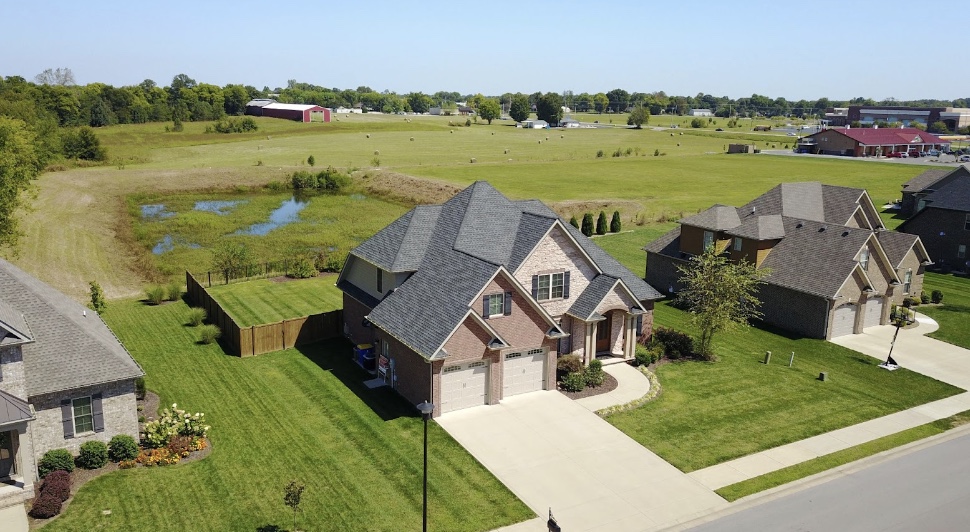Are you ready to reap the benefits of real estate investing? If yes, it is time to start looking at houses in your region. Real estate is an excellent investment in general.
Purchasing one has been a popular option for many years, and the demand for rental homes is more significant than ever due to rising housing prices. If you can, it might be a valuable thing to invest in real estate.
We have put together everything you need to know before getting a loan for your first investment property and starting generating money.
Story Stages
Concept of Investment Property
An investment property is a real estate acquired to generate revenue via rental income or appreciation. Investment properties are often obtained by a single investor, a couple of investors, or a group of investors.
Buying houses for investment might be a long-term or short-term enterprise. With the latter, investors may participate in flipping or, in other words, acquiring real estate, rebuilding or renovating it, and then quickly selling it for a profit.
The word “investment property” can also refer to other assets purchased by an investor for future gains, such as art, stocks, land, or other collectibles.
Advantages of Buying a Home for Investment
Real estate may provide continual passive income and be an excellent long-term investment if its value rises over time.
One key element to succeed in this field is understanding how to invest in a house, including the immediate and long-term rewards.
Consistent Earnings
Most individuals invest in real estate to generate a consistent cash stream in rental income.
This net income is a solid incentive to get started if you purchase rental property. Depending on where you reside, you may be able to earn enough to cover your expenditures while also generating extra money.
You are not limited to dealing with one property at a time; you may increase the pace and engage in many rental properties at once to maximize your positive cash flow and diversify your private equity portfolio.
Financial Security in the Long Run
The advantages of buying houses for investment offer investors long-term financial security. When you have a consistent cash flow in succession, this investment’s benefits last a long time.
Since they appreciate over time, rental properties may give investors a sense of security. Because land and buildings are appreciating assets, so the value of your estate will most eventually grow.
Tax Advantages
One of the advantages of investing in real estate is the tax breaks that come with owning a rental property.
One of the key reasons why many individuals may want to invest in real estate is for this rationale. Rental income, for example, is exempt from self-employment tax.
In addition, the government offers tax breaks for insurance, depreciation, maintenance services, expenses, litigation fees, and state taxes.
Mortgage Payments are Managed
Buying an investment property to rent also extends your renters. Simply put, your monthly rental revenue will cover all your costs, including your mortgage payments.
Your tenant is primarily the one who pays your mortgage. That is why it is vital to keep your renters satisfied and avoid or reduce vacancy’s negative repercussions at all costs.
Valuation of Real Estate
If you are currently involved in real estate investment or are just getting started, you know that real estate is not a short-term investment strategy.
On the contrary, one of the benefits of investing in real estate is that capital assets increase in value over time. In other words, your house’s worth will be much higher in 30 years, which is why shareholders are in it for the long term.
Inflation
One of the benefits of investing in real estate is that it functions as an inflation hedge. When inflation is high, your rental income and property value grow considerably.
Real estate investors anticipate inflation because as the living costs grow, so does the cash flow.
You Make Your Own Decisions.
The most excellent part about real estate is that you can be your boss. You have total autonomy and control over your real estate investing strategy and your mistakes and achievements, just like any other firm.
You decide which property to invest in, who will live in, how much rental revenue to charge each month, and who will manage and maintain the property.
Indicators That You Are Prepared To Purchase A Property
If you are ready to buy a property after learning the basics of assets, understand that the purchasing procedure for an investment property differs from that of a primary residence. Once you invest in real estate, ensure you satisfy the condition.

You are Financially Secure
Investment properties need significantly greater financial stability than primary residences, especially if you intend to rent the property to renters.
Expenses for investment properties do not begin when tenants come in or when you take over responsibilities for the property’s present inhabitants.
It would help if you also spent on advertising and credit checks to ensure you obtain the most acceptable tenants possible. A good group of renters is advantageous to your property, while undesirable tenants may significantly raise your expenditures.
But having bad credit in the past doesn’t mean you aren’t able to still improve your financial state, you can gain a new property to rent out by using equity in your home and getting home equity loans for poor credit.
Budget for more money than you think you will need for routine and emergency house repairs. Check out Cheap Homes Austin, TX at Homes by Ardor.
Return on Investment (ROI)
It is a performance metric used to assess the effectiveness of an investment or to compare the efficacy of many assets. Real estate investors frequently experience positive cash flow from their investment properties in today’s market.
Still, the savviest investors assess their approximate return on investment (ROI) rates before purchasing a property. Return on investment is a primary ratio that divides an investment’s net profit or loss by its cost.
You Have Enough Time To Handle It
Investment property administration still requires a significant amount of time. You must promote your space, possibly interview renters, do background checks on tenants, ensure that tenants pay their rent on time, maintain your property, and make timely repairs if anything in the home breaks down.
Make sure you have enough time to maintain and monitor your space before buying houses for investment.
Considerations When Purchasing Home for Investment
We have put together this brief guide to the essential elements to consider when purchasing an investment property.
While each scenario must be evaluated individually and in light of local patterns, these elements are an excellent starting point for assessing if it is an intelligent decision to leap.
How You Want to Finance
When it comes to investing in, only some people are going to have cash upfront to pay for real estate. Fortunately, there are many ways to finance this, such as home equity credit loans and mortgages, but it can go beyond that. One thing you need to remember is what banks or lenders will accept. If this isn’t your first purchase, it could be more challenging, but it’s all going to be up to the bank or lender to decide.
Location
You need to take a realistic approach to think about your investment property. For example, even good investment properties are doubtful to bring in customers if they are situated in a region that only sees a small number of people on a regular basis.
Take into account the surrounding area first, followed by the property itself. It may seem contradictory given that you are acquiring a physical building; yet, it is doubtful that the ideal property in the incorrect location would be the appropriate one.
Differences in Down Payments
The minimum amount of money that must be put down on an investment property is often more than what is required for a conventional family home.
There are a number of criteria that go into determining how much of a down payment you will be required to make, including your debt-to-income ratio (DTI), your income, and your credit score.
Before beginning a home quest, like any real estate acquisition, finalize your financing terms so you know what is realistic and what is not.
The One Percentage Rule
When determining your estimated return on a property, it is usually a brilliant idea to use the 1% rule. The 1 percent rule is a real estate investing phrase used by investors to analyze if a particular transaction is worthwhile.
According to the guideline, you should aim to earn no less than 1% of the price you pay each month, including the purchase price and any additional money you put into it, such as repairs or improvements.
Fixes and Variable Costs
A rental property is not a one-time purchase. Costs are associated with owning and maintaining any fixed and variable property.
If you want to avoid going into the red every year, you need to create a budget that takes into account the fact that it is not always feasible to anticipate these expenses with complete precision.
Should you wish to invest in real estate in the future, look for homes under 100k in Austin, TX..
It is more difficult to estimate variable costs, but doing so will allow you to be better prepared for unforeseen maintenance requirements, such as having to replace a water heater or make repairs to a roof after a storm.
Understand the Risks
Like anything else in real estate, buying an investment property comes with hazards, and you must understand these dangers.
Do not focus solely on the risks but do not dismiss them. No investment is ever guaranteed; you must ensure that you are not caught off guard if something goes wrong and that you have some financial flexibility.
Bottomline
A house is an investment with various financial rewards and hazards, making it an asset that is not suitable for everyone. Weighing the rewards of an investment against the dangers is critical.
A logical analysis of the advantages and negatives will help you decide whether to invest in real estate or look for greater profits elsewhere.
An investment property might be one of the most profitable investments ever. Work with an expert adviser to assist you through the process, make the best possible purchase, and appropriately consider all of the above aspects to ensure that your investment is wise.
Once you have carefully examined whether you are ready and want to proceed with purchasing an investment property, the following step is to secure financing. Check out Homes By Ardor, and you will be on your way to buying your first investment property.
